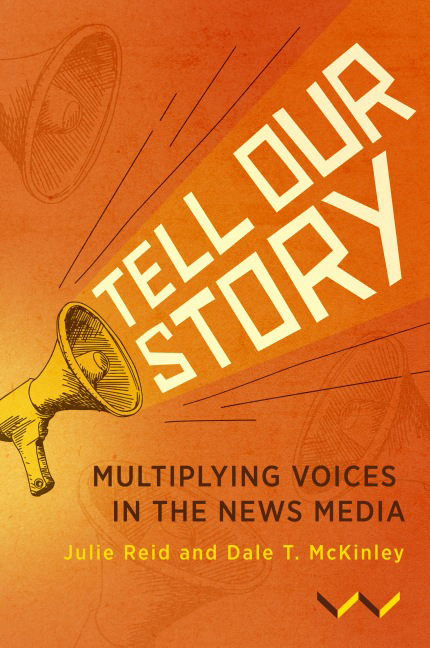Book contents
- Frontmatter
- Contents
- List of Figures
- Acknowledgements
- Abbreviations and Acronyms
- Chapter 1 The Importance of Voice and the Myth of the ‘Voiceless’
- PART 1 FROM THE INSIDE: VOICE(S) FROM THE GROUND
- Chapter 2 Community Perspective, Experience and Voice
- Chapter 3 Glebelands Hostel, Durban
- Chapter 4 Xolobeni, Eastern Cape
- Chapter 5 Thembelihle Community, Johannesburg
- PART 2 FROM THE OUTSIDE: DOMINANT VOICE
- Chapter 6 Dominant Media Telling and Elite Communication
- Chapter 7 The Political Economy of Dominant Power and Storytelling
- PART 3 NEW TRAJECTORIES FOR JOURNALISM AND VOICE(S)
- Chapter 8 Media Diversity and Voice(s)
- Chapter 9 Rethinking Media Freedom, Revamping Media Ethics
- Chapter 10 Planting the Seeds of Change
- Notes
- Bibliography
- Index
Chapter 8 - Media Diversity and Voice(s)
Published online by Cambridge University Press: 10 September 2020
- Frontmatter
- Contents
- List of Figures
- Acknowledgements
- Abbreviations and Acronyms
- Chapter 1 The Importance of Voice and the Myth of the ‘Voiceless’
- PART 1 FROM THE INSIDE: VOICE(S) FROM THE GROUND
- Chapter 2 Community Perspective, Experience and Voice
- Chapter 3 Glebelands Hostel, Durban
- Chapter 4 Xolobeni, Eastern Cape
- Chapter 5 Thembelihle Community, Johannesburg
- PART 2 FROM THE OUTSIDE: DOMINANT VOICE
- Chapter 6 Dominant Media Telling and Elite Communication
- Chapter 7 The Political Economy of Dominant Power and Storytelling
- PART 3 NEW TRAJECTORIES FOR JOURNALISM AND VOICE(S)
- Chapter 8 Media Diversity and Voice(s)
- Chapter 9 Rethinking Media Freedom, Revamping Media Ethics
- Chapter 10 Planting the Seeds of Change
- Notes
- Bibliography
- Index
Summary
Published in 1960, Harper Lee's novel To Kill a Mockingbird was immediately successful, and subsequently came to be considered one of the great classics of American literature. At the core of the book are themes of social justice and racial injustice. But it is the heart-wrenching unfairness when some people are both represented, as well as held to account, in ways that are blatantly inconsistent with other people, simply because of the power imbued in arbitrary descriptors such as race, class or social status that touches us. The mockingbird encompasses 17 different species of birds, which are known for the way in which their calls mimic other birds or insects.
In this section of this book, the mockingbird metaphor refers to dominant news media outlets that consistently mimic and reproduce content aligned to the same worldviews and ideological positioning, often at the expense of the ethical, moral and social justice implications of doing so.
While the task to transform the mainstream media into a sphere that is more willing and capable of operating as a platform for the wider inclusion of voice(s) is a moral, ethical and democratic project, it is also one that can positively impact on the financial bottom line of media outlets. All over the world, and in South Africa, the news media currently faces a double-edged crisis: a crisis of credibility and a crisis of financial sustainability (the latter is particularly hard felt by the print media sector). We will address the financial sustainability aspect a little later, but first the matter of credibility, which for any legitimate news media outlet is and ought to be its most prized possession.
Political and social discourse surrounding what is now called fake news is partly fed by genuine concern for the factual accuracy of the news, but also partly by moral panic, part hysteria, a large part by political actors as a means of directing attention away from their own failings and scapegoating the media, and partly because fake news in the postdigital age becomes increasingly easier to produce, replicate and disseminate. Importantly, misinformation, in one form or another, has been with us for as long as the mass communications media has formed part of our daily lives. We used to call it things like propaganda, unethical journalism, plagiarism, brown-envelope journalism or spin doctoring.
- Type
- Chapter
- Information
- Tell Our StoryMultiplying Voices in the News Media, pp. 147 - 160Publisher: Wits University PressPrint publication year: 2020



